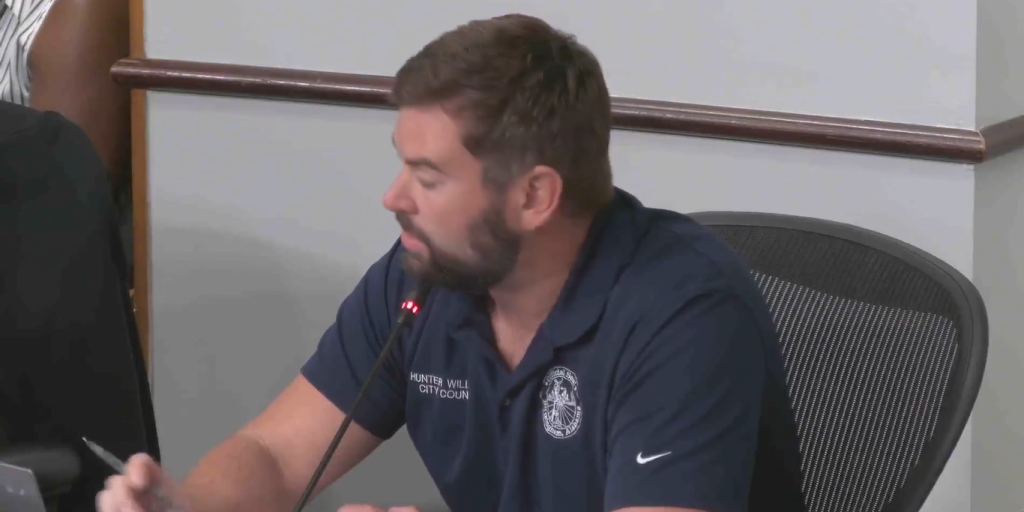
Listen to the 10 min audio
Read the transcript:
TOM LAMPRECHT: Harry, additional statistics are in from the Open Doors’ “Intolerance Against Christians.” The number of Christians murdered increased to more than 3,000 in 2017. The report analyzes the data collected in 2017, a year in which, according to the organization serving persecuted Christians worldwide, violence against Christians has significantly increased. Right now, 1 in 12 Christians live where Christianity is illegal, forbidden, or punished, the organization says.
WHERE IS CHRISTIAN PERSECUTION TODAY?
DR. REEDER: One out of every 10 Christians is living under the threat of the loss of their life when they wake up in the morning, either by government action or government approval. If you go through the list of nations, almost all of them – except for one notable exception – these are Islamic nations where the radical militant Islamic fascist that is government use of power is constantly being brought to bear.
Notably, in places like Pakistan, there were about 100 plus incidents of churches being attacked last year; Afghanistan, where we have troops, actually, fighting this war on terror; the northern part of African sub-Saharan Africa; the most notable exception is North Korea.
Now, what should be noted as we take a look at it, Tom, is that this is always a religious phenomena. The persecution against Christians is, by and large, vast majority governmentally enforced where the Islamic religion controls the culture and controls the government.
An exception, of course, would be North Korea, where we have the old-line persecution that we saw back in the 20th century – an old-line persecution of a government that is confessedly atheistic. It then puts to death anything that would rival the government and Christianity is seen as a rival because Christians are discipled to be good citizens, but they are also discipled that the government, as God, is not to be worshipped and that Caesar is not Lord, but only the Lord is the Lord.
And so, we see a place like North Korea, where you have not only a confessed and governmentally documented atheism, in general, in terms of the religions of mankind, but you have the deification of the dictator and so he must be worshipped and, therefore, Christianity is seen as an enemy and, thus, Christians are targeted in North Korea.
WHAT ARE CHURCHES DOING TO HELP?
Tom, that’s what we see at work and I think of my brothers and sisters and where they are, but I also want to know that there are verified reports that, in those places, a robust movement of Christianity is taking place. I am not allowed to give any of the internals of this but, at Briarwood, we are engaged in Asia, in Indonesia, in Pakistan and in India. And we are also engaged at certain places in Asia – again, I cannot be more specific but I will be specific about this one but not the mechanisms that are being used – we’re being engaged in Iran.
Doing what? We are able to provide literature, we are able to provide encouragement and support and we are able to provide training for ministers who are pastoring churches that are “underground churches” in these nations of persecution. And, of course, we’re doing that along with a number of others and one agency that is of extraordinary help to us is the one that has brought these statistics to bear and that is Open Doors. We have found them to be insightful and reliable and extremely helpful.
Now, at Briarwood, our people with their sacrificial and generous giving has allowed us to do some things beyond our normal focus that predominates what we do – which is evangelism, discipleship, church planting and church revitalization – and one of the things we’ve been able to do over the last couple of years is minister to the persecuted church.
And we actually even set up a subcommittee in our missions ministry to gain the information. We have multiple communications that we do not share publicly and on the internet that we are privy to of those who are serving the Lord in very, very difficult and dangerous situations.
DOES GOD USE PERSECUTION FOR GOOD?
We are getting reports of significant multiplication of believers and leaders in these very areas. And, again, it’s being borne out when Satan brings persecution – he thinks he’s going to stamp out the church but, in reality, all he’s doing is spreading the church.
You see a great example of that when the persecution hit Jerusalem in the book of Acts – all it did was spread the Christianity to Judea, and Samaria, and to a place called Antioch and then onto the world so that’s what is happening. And, in fact, in some of these places, these persecuted Christians are actually sending missionaries to other persecuted areas. It’s really a phenomena that is so encouraging.
Now, having said that, I would like to call upon our nation to understand what is being done and stand against any and all religious persecution, but realize how, in a very significant way, Christians are in the crosshairs and we need to come to the rescue of these people with governmental policies. I’m not talking about military invasions, but governmental policies dealing with nations that have sanctioned persecutions against religion, in general, but Christians, in particular.
WHAT IS OUR ROLE AS BELIEVERS TO MINISTER TO THE PERSECUTED?
For us as Christians, Tom, there’s a wonderful passage of Scripture I ask our folks to read. Would you read it today?
TOM LAMPRECHT: Harry, you’re talking about Hebrews Chapter 13, specifically, Verse 3, but let me pick up at Verse 1. “Let love of the brethren continue. Do not neglect to show hospitality to strangers for, by this, some have entertained angels without knowing it.” Verse 3, “Remember the prisoners as though imprisoned with them and those who were ill-treated since you, yourselves, also are in the body.”
DR. REEDER: And you were correct to read the context because the writer of Hebrews is writing at a time when persecution is starting to be felt in the first century so he’s telling us, “Keep loving each other even though you may get persecuted because you love the Lord and love each other. Show hospitality – don’t close off your heart.” Then he’s kind of referring to the event when Abraham and Sarah showed hospitality to three strangers and it was actually the entertaining of two angels and a Christophany – a pre-Incarnate appearance of Christ – recorded in the book of Genesis.
And then, of course, he then says that we are to visit the prisoners. The context is talking about the believers who have been imprisoned and who are being persecuted and assaulted. That’s why it says, “Remember their suffering. You, too, are in the body. You have a body – you know what it means to suffer and if you know what it means to suffer, you know how you would want people to help you in your suffering. Now you see them who are suffering in their imprisonment and under assault. Reach out to them and minister to them. Don’t go run from your brothers who are imprisoned and under persecution – run to them. Don’t run from them; run to them. Don’t disassociate yourself from them; embrace them.”
That’s why I would strongly encourage every church to embrace the ministry to the persecuted church in some form or fashion. There are many places we can tell you about the value of the enterprise of missionary endeavor, but one of the places we can’t talk about much because we can’t get the information but it is there and there are those that can help you such as Open Doors, are our brothers and sisters who are dying for the faith.
GLIMMERS OF HOPE — GOD ALWAYS TRIUMPHS
Tom, I’ll just simply finish. One of the places that I’ve gone is Uganda in the 1980s when Idi Amin and Obote were putting to death Christians. I went to the place where hundreds of my brothers and sisters were persecuted in gruesome deaths and I stood there and realized what had happened.
Today, Uganda, beginning in the late 1970s, has been the epicenter of the east and central Africa revival that is now going into its fourth decade and Uganda now has the vast majority of its citizens professing Christ, a stable economy and all the blessings that have come from Him.
That’s what God can do. These very areas of persecution can become epicenters of a Gospel revival.
Dr. Harry L. Reeder III is the Senior Pastor of Briarwood Presbyterian Church in Birmingham.
This podcast was transcribed by Jessica Havin. Jessica is editorial assistant for Yellowhammer News. Jessica has transcribed some of the top podcasts in the country and her work has been featured in a New York Times Bestseller.
Podcast: Play in new window | Download
Subscribe: RSS












